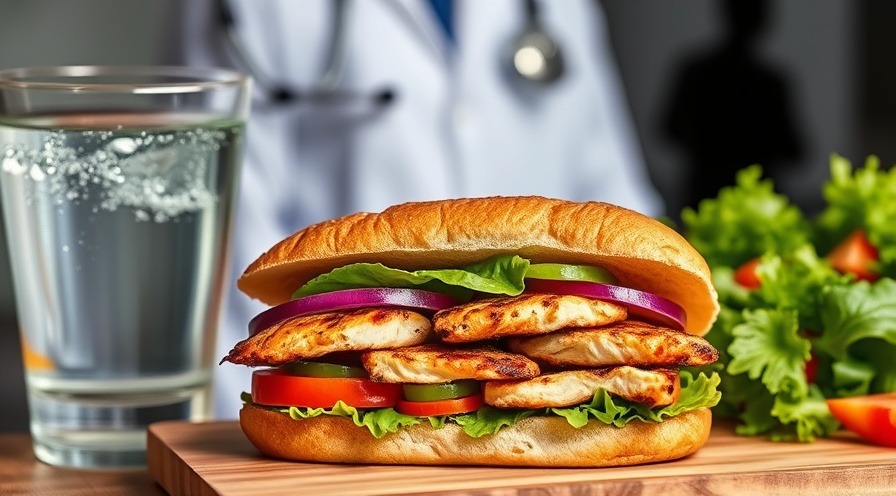
The Fascinating World of Couscous: Beyond the Basics
Couscous, often mistaken for a grain, is actually pasta made from crushed semolina wheat. While it has gained popularity as a quick and convenient meal base in many cuisines, it still leaves many people wondering: is it really a healthy option? To understand its nutrition and versatility, let’s delve into what couscous brings to the table.
In 'Gluten-Free Couscous: Healthy Alternatives You Can Try', the discussion dives into the types and health implications of couscous, which has prompted us to analyze its nutritional value and explore healthier options.
Understanding Different Types of Couscous
There are three main types of couscous, each varying in size, texture, and cooking time:
Moroccan Couscous: The smallest variety, which cooks in about 5 minutes, is the most common and often used in quick meals.
Israeli Couscous: Also known as pearl couscous, it’s larger, rounder, and has a delightful chewiness that makes it great in hearty dishes.
Lebanese Couscous: The biggest type, resembling mini pasta balls, adds a unique texture to meals and can absorb flavors wonderfully.
Numerical Nutrition: What’s Inside Couscous?
Per one cup of cooked Moroccan couscous, you can expect:
Calories: Around 175
Carbohydrates: Approximately 36 grams
Protein: About 6 grams
Fat: Less than 1 gram
Selenium: Covers about 60% of your daily needs
Fiber: Roughly 2 grams
Although couscous offers some nutritional benefits such as being low in fat and a good source of selenium, it also presents challenges for those requiring gluten-free options, particularly individuals with celiac disease.
Considerations: Is Couscous Right for You?
Despite its convenience, it's essential to factor in couscous’s drawbacks as well:
Not Gluten-Free: As it’s made from wheat, couscous isn't suitable for those with gluten intolerances.
Low Fiber Content: Regular couscous boasts less fiber than whole grains like quinoa or brown rice. For a more nutritious option, choose whole wheat couscous.
High Glycemic Index: Couscous can cause a quicker spike in blood sugar levels, making it crucial to pair it with proteins and healthy fats for balance.
Couscous: Versatile Culinary Ingredient
Couscous’s light and fluffy texture makes it a fantastic base for various dishes. It can be paired with vegetables and proteins, incorporated into salads, or served as a side dish. It absorbs flavors beautifully from dressings, broths, or spices, enabling endless culinary creativity. Parents looking for a quick meal option can greatly benefit from incorporating couscous into their dinner routine.
Conclusion: Balancing Couscous in Your Diet
Ultimately, couscous stands out as a quick and versatile option perfect for busy weeknights. While it may not hold the same nutritional density as some whole grains, it serves well when time is short. As with all food options, keeping portions moderate and balancing meals with veggies and proteins are essential for maintaining a healthy diet.
To stay updated on the latest health and wellness trends, we encourage you to explore further information about healthy eating and cooking options that fit into your lifestyle. Dive deeper into tips, recipes, and nutritional advice to make informed decisions for yourself and your family.
 Add Row
Add Row  Add
Add 




Write A Comment